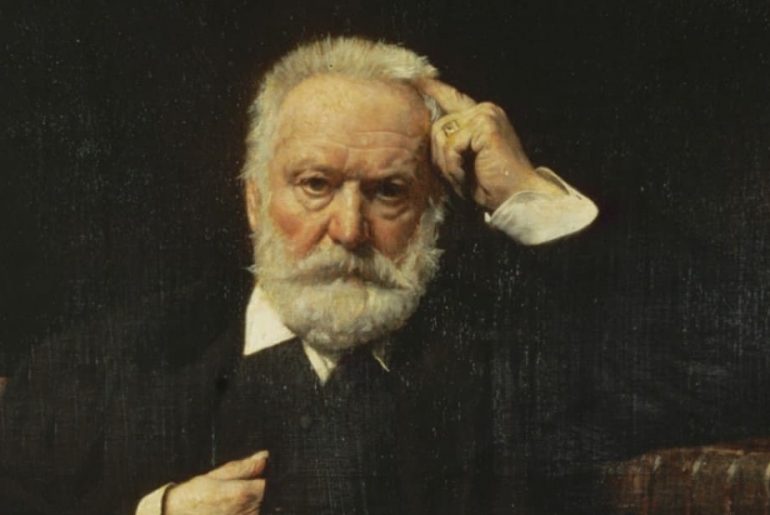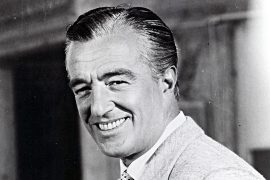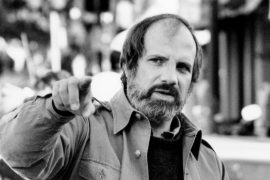The writer founded French Romanticism and was one of its most prominent representatives. In his productive work, Victor Hugo acted as a stimulus for further generations of poets, especially in the 19th century. Hugo not only favored the pathetic, but also invented the grotesque as an aesthetic quality in literature. Among other things, Victor Hugo wrote novels, dramas and poems that had a scale character. His work had a lasting influence on the writers of the Parnassians, a group of French modernists. His romantic novel “Notre-Dames de Paris” about Paris in the 15th century is considered the most important French historical novel…
Victor Marie Hugo was born on February 26, 1802 in Besançon.
Victor Hugo was already interested in writing as a teenager. In 1817 the Académie française honored him with an award for one of his early poems. Two years later he published his novel Bug Jargal. In 1822 his volume of poems “Odes et poésie diverses” (Odes and Other Poems) was published. This was followed in quick succession by the novel Han d’Islande (1832) and the poetry collections Odes nouvelles (1824) and Odes et ballades (1826). ), in German “Odes and Ballads”. In the two years 1823 and 1824 he was a member of the circle of poets “Le Cénacle”, which had formed around the writer Jean Charles Emmanuel Nodier. Victor Hugo was one of the co-founders of the magazine “Le Conservateur littéraire”. In the foreword to his historical verse drama “Cromwell” (1827) he laid down his literary programme. In it he announced the separation from the strict stylistic principles of French classicism. On the other hand, he propagated the ugly and grotesque in life as a claim to truth in literature. He equated nature with art.
The “Cromwell” play was first performed in 1956 in the main courtyard of the Louvre. The preface was published separately as “Préface de Cromwell” in 1827 as a manifesto of the Romantic movement. It became the most important programmatic document of the French Romantics. This made Hugo the central figure in the group “Le Cénacle” in 1827 and 1828. In his second verse drama about Marion de Lorme, a famous courtesan of the 17th century, he consistently implemented his literary program. The censorship justified a publication ban with the exaggerated representations of Louis XIII. In 1830 the drama “Hernani ou l’Honneur Castillan” was published. In the five-act work, Victor Hugo used the loose verse coupé instead of the strict Alexandrian meter. The protagonist of the reading moved in his own way between high-spirited and majestic. When it premiered at the Comédie-Française, the piece sparked controversy between the romantics and the critical conservatives. This event went down in literary history as the Bateille d’Hernani, the Battle of Hernani, which was continued in the newspapers of the time.
With the drama “Hernani” Hugo inspired the Italian composer Giuseppe Verdi to write his opera “Ernani” from 1844. With the historical novel “Notre-Dames de Paris” (1831) Victor Hugo made his breakthrough as a romantic novelist. It is about 15th-century Paris, centered on the Gothic cathedral. The work achieved world fame and stands for the most successful historical French novel work. Also in the German translation as “Hunchback of Notre-Dame” the book became widely known and experienced some film adaptations. In 1841 Victor Hugo was admitted to the Académie française. The drama “Le Burggraves”, created in 1843, was a failure in contrast to the “Hunchback”. In the same year his daughter Léopoldine died. The title “Les Misérables” (1862, German 1929) lies somewhere between a crime novel and a historical novel. In it – as in many of his other plays – the poet used himself as an advocate for the people and for the disadvantaged.
For this reason, “Le Châtiments”, hate poems on Napoléon III. to understand. Later, the writer turned more to politics. Hugo’s attitude towards the monarchy had already been shaped in his parents’ home. After the July Revolution, he sided with the royalists. In 1845 he was knighted by King Louis Philippe. But during the 1848 revolution he became a supporter of the Republicans and a Bonapartist MP in Parliament. A year later he became a member of the National Legislative Assembly. His political involvement took place with the unsuccessful coup against President Louis Napoleon, who later became Emperor Napoleon III. came to a quick end in 1851. Victor Hugo had to flee and lived on the island of Guernsey until 1870. After that he returned to France.
Victor Hugo died in Paris on May 22, 1885.
The “Prix Victor Hugo”, one of the most important literary prizes in France, was named after the poet. Victor Hugo’s literary impact extended beyond his century.
What did Victor Hugo do?
Victor Hugo is considered one of the most famous French writers. His novels The Hunchback of Notre Dame (1831) and The Miserables (1862) produced a profusion of lyrical and engaging poetic works.
Why was Victor Hugo in exile?
For his resistance to Napoleon III’s coup d’état. he banishes the brilliant poet Victor Hugo from France. In 1853 the poet eked out his exile on the island of Jersey and, in addition to writing, devoted himself to spiritualism.
What did Victor Hugo do in 1830?
Between 1838 and 1840, Hugo undertook three journeys along the Rhine, which took him all the way to Switzerland. He presented his detailed local observations and generalized conclusions in the 1841 published.
What was Victor Hugo known for?
Poet, novelist, and dramatist Victor Hugo is considered the most important of the French Romantic writers. Though regarded in France as one of that country’s greatest poets, he is better known abroad for such novels as Notre-Dame de Paris (1831; The Hunchback of Notre-Dame) and Les Misérables (1862).
How did Victor Hugo change the world?
It was in these years that Hugo really gained his reputation as a radical, outspoken political writer who lent his voice and support to movements all over the world. And, most importantly, he wrote and published Les Misérables, the novel that more than anything else would make his name synonymous with revolution.
Why did Victor Hugo write Les Misérables?
Answer and Explanation: Victor Hugo claimed that he wanted his novel to draw attention to the effects on society of ignorance and poverty. The actual event that inspired the author was the June Rebellion of 1832. Themes that pervade the novel are the power of the law and the power of human grace.
What is Victor Hugos most famous poem?
Demain, dès l’aube. Potentially the most famous Victor Hugo poem, Demain dès l’aube was written four years after the death of his recently married daughter Léopoldine, who drowned alongside her husband in a boating accident on the Seine in 1843.
How did victor hugo die?
Hugo’s death from pneumonia on 22 May 1885, at the age of 83, generated intense national mourning. He was not only revered as a towering figure in literature, he was a statesman who shaped the Third Republic and democracy in France.





